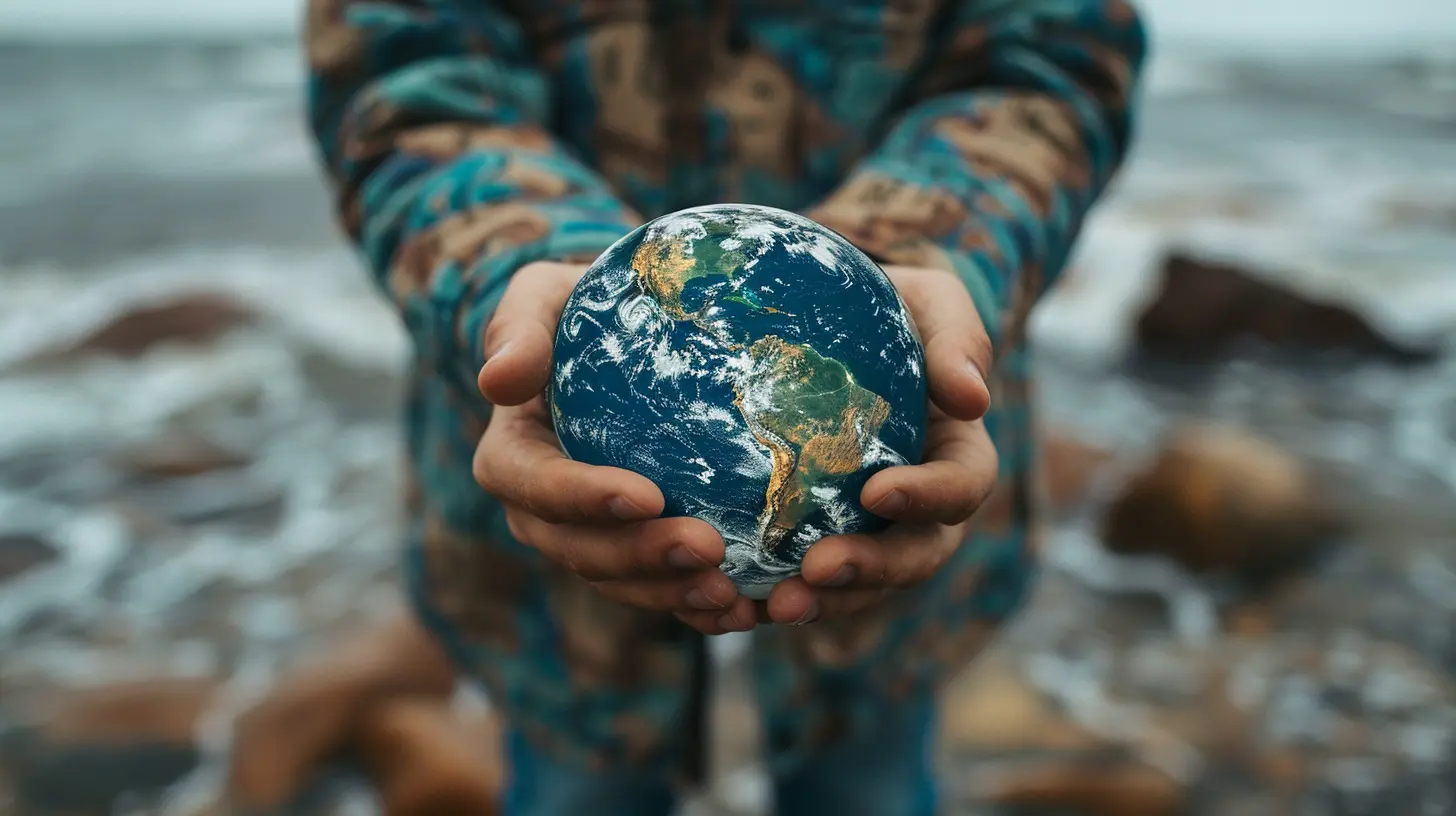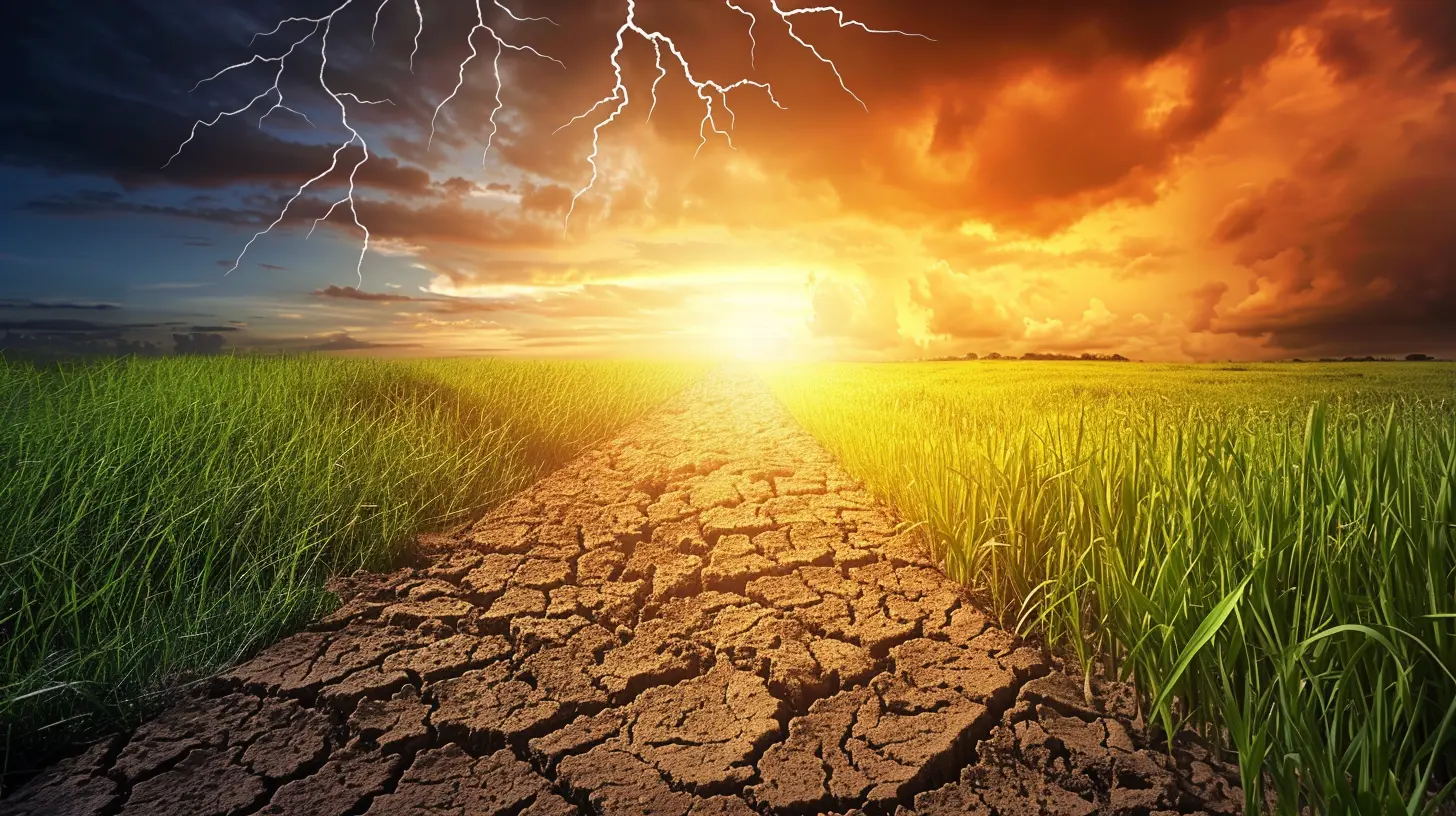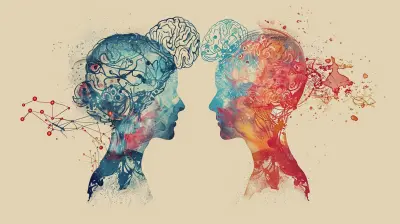How Behavioral Science Can Help Combat Climate Change
8 April 2025
Ah, climate change—our favorite apocalyptic bedtime story. Ice caps are melting, forests are burning, and yet, some people still think recycling that one plastic bottle will make them the next Greta Thunberg. But hey, don’t lose hope just yet! Instead of waiting for politicians to figure it out (spoiler alert: they won’t), let’s talk about something that actually works—behavioral science.
That’s right, folks. If we can trick ourselves into buying things we don’t need because of a flashy “limited-time offer,” surely, we can manipulate ourselves into saving the planet. So, buckle up as we dive into the weird and wonderful ways behavioral science can help us fight climate change—without making us feel like we’re living in a doomsday documentary.

The Psychology Behind Our Terrible Climate Habits
Before we get into the solutions, let’s address the elephant in the room: why are we so bad at making eco-friendly choices? Well, turns out human brains are wired for instant gratification.- We Love Immediate Rewards: When given the choice between an immediate pleasure (like blasting the AC at full power) and a long-term benefit (like not turning Earth into a flaming ball of doom), we usually go with—the AC, obviously.
- We Suffer From "Optimism Bias": People assume climate change won’t personally affect them. Spoiler alert: it will.
- We’re Creatures of Habit: Changing behavior requires effort, and, well… we’re lazy.
Luckily, behavioral science gives us a few psychological hacks to override these instincts and trick ourselves into doing better.

Nudge Theory: Manipulating Ourselves for Good
Ever found yourself following a marked path simply because there were arrows on the ground? That’s nudge theory in action. Instead of forcing people to make better choices, nudges subtly steer them in the right direction.1. Making Green Choices the Default Option
People are inherently lazy—I mean, efficient. If something is the default choice, most of us will just roll with it. Countries with opt-out organ donation policies have way higher participation rates than opt-in ones. So, why not apply this to eco-friendly choices?- Imagine if companies made paperless billing automatic instead of asking people to opt in.
- What if restaurants automatically served plant-based meals unless you specifically asked for meat?
- How about making renewable energy the default provider instead of fossil fuels?
Give people an easy way out, and they’ll take it—without even realizing they’re saving the planet.
2. Social Proof: Because Everyone Wants to Fit In
Humans crave social acceptance more than cats crave knocking things off tables. If we think everyone is doing something, we’re more likely to join in.- Electric bills that show how your energy use compares to your neighbors? Yep, that makes people use less power.
- Airlines subtly shaming passengers by showing how much CO₂ their flight emits? Guilt works wonders.
- Hotels encouraging guests to reuse towels by saying “most guests do”? Turns out, nobody wants to be that guy wasting resources.
Basically, if you make eco-friendly behavior look like the norm, people will go along with it—because nobody likes feeling left out.

The Power of Immediate Rewards
Long-term benefits like “saving the planet” sound great, but they don’t give us that sweet, instant dopamine hit. So, what if we rewired climate-friendly habits to feel immediately rewarding?3. Gamification: Turning Saving the Planet into a Game
Who said being green had to be boring? Gamification uses points, badges, and challenges to make people actually enjoy making better choices.- Apps that track your carbon footprint and reward you with discounts? Genius.
- Smart home systems that turn energy-saving into a fun competition? Hook it straight into my veins.
- Public transport giving out perks for frequent use? Sign me up.
If we can spend hours collecting imaginary points in mobile games, why not do the same for saving the planet?
4. Financial Incentives: Because Money Talks
Want people to care? Hit them in the wallet.- Higher taxes on excessive energy use? Suddenly, that air conditioner isn’t cranked up all the time.
- Charging extra for plastic bags? Now, reusable ones are so in.
- Discounts for bringing your own coffee cup? Sweet, free caffeine perks.
Make eco-friendly choices financially attractive, and people will switch faster than a Wi-Fi signal at a free café.

Overcoming Psychological Barriers
It’s not just about nudging people in the right direction—it’s about removing the psychological roadblocks that make climate action seem impossible.5. The “What Difference Can I Make?” Syndrome
One of the biggest problems? People feel like their small actions don’t matter. But let’s be real—if billions of people decide their choices don’t count, we’re doomed.- Reframing climate action as collective impact (instead of boring old individual responsibility) helps.
- Showing people the cumulative effect (like "if 1 million people switch to reusable bottles, we save X amount of plastic") makes their actions feel meaningful.
Your tiny habit might not save the world overnight, but when millions join in? That’s the magic sauce.
6. Preventing Eco-Fatigue
Green guilt is real. If people feel overwhelmed, they check out faster than a toddler at naptime.- Instead of bombarding people with guilt-tripping doom stats, focus on positive wins.
- Celebrate progress instead of just screaming about impending disaster.
Encouraging people to start small and feel good about it ensures they don’t abandon ship completely.
The Role of Governments and Businesses
Let’s be honest—individual action is great, but without systemic change, it’s like trying to mop up a flood while the tap is still running. Luckily, behavioral science can also help governments and businesses push eco-friendly policies effectively.7. Legislation Meets Behavioral Tricks
What happens when you mix smart policies with psychological insight? Magic.- 🚦 Carbon labeling on products: Just like nutrition labels guilt you into making “healthier” choices, carbon footprint labels can influence consumer habits.
- 📢 Advertising bans on fossil fuels: If we can restrict cigarette ads, why not planet-killing ones?
- 💸 Eco-friendly subsidies: Make green choices the cheap and easy option.
8. Making Sustainability Look Cool
Let’s face it—people follow trends. If being eco-friendly is seen as lame and inconvenient, nobody wants in.- When celebrities and influencers endorse sustainable brands? Suddenly, it’s a thing.
- When reusable water bottles become a fashion statement? Boom—mass adoption.
- When electric cars went from golf carts to Tesla cool? Everyone wanted one.
If we make sustainable choices aspirational instead of just necessary, mass adoption becomes effortless.
Final Thoughts: Tricking Ourselves Into Saving the Planet
In a world where people will line up for hours just to buy the latest iPhone, it’s clear that behavior can be influenced—if done correctly. Behavioral science gives us the tools to make eco-friendly choices easy, rewarding, and, dare I say, even fun.At the end of the day, small tweaks in our decision-making environment can lead to major changes. So, let’s use a little psychology to outsmart our worst instincts and, oh, I don’t know—save our only livable planet? No pressure.
all images in this post were generated using AI tools
Category:
Behavioral PsychologyAuthor:

Gloria McVicar
Discussion
rate this article
3 comments
Dixie Hahn
Behavioral insights are key to sustainability!
April 29, 2025 at 3:51 AM

Gloria McVicar
Absolutely! Behavioral insights drive effective strategies that encourage sustainable practices and foster lasting environmental change.
Samuel McAllister
Engaging behavioral science can effectively encourage sustainable practices and drive climate action.
April 21, 2025 at 4:13 AM

Gloria McVicar
Absolutely! Behavioral science offers valuable insights into human motivations, making it a powerful tool for promoting sustainable behaviors and fostering meaningful climate action.
Lyanna Simon
Behavioral science isn't just a tool—it's our lifeline in the climate crisis. Understanding human behavior is essential for enacting meaningful change. We must prioritize these insights and take decisive action. No more excuses; the planet demands our bold commitment.
April 13, 2025 at 3:44 PM

Gloria McVicar
Thank you for highlighting the critical role of behavioral science in addressing the climate crisis. Understanding and influencing human behavior is indeed key to driving impactful change for the planet.



